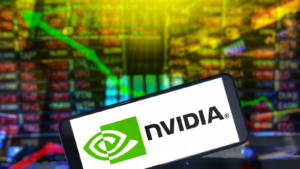
Thanks to the surge in interest in AI stocks, 5G has moved out of the spotlight. You don’t see as much interest in strong buy 5G stocks as you did a few years ago.
However, that doesn’t mean there aren’t opportunities for 5G as it rolls out worldwide.
CNBC recently reported that even though telecoms haven’t finished rolling out 5G worldwide, they’re already talking about 5.5G or 5G Advanced. Products that will be powered by 5.5G include Apple’s (NASDAQ:AAPL) Vision Pro mixed reality headset.
Even though there were one billion 5G connections by the end of 2022, they’re expected to reach 5.5 billion by 2030, leaving plenty of opportunity for telecoms and related businesses to generate revenue from existing 5G technology.
Experts suggest that the money invested in 5G might not deliver the expected returns on their investments until 5.5G is rolled out.
The winners in 5G will be those companies that build a bridge to 6G. Here are three 5G stocks to add to your Q2 must-watch list.
AT&T (T)

AT&T (NYSE:T) is beginning to turn the corner after spinning off its Time Warner media business and combining it with Discovery Communications in April 2022. The move significantly reduced the telecom’s debt situation.
As it grows its 5G and fiber businesses, it’s accelerated the repayment of its remaining debt while also returning capital to shareholders through share repurchases and dividends.
The company added over 1.7 million postpaid wireless customers in 2023 with substantial average revenue per user. It also added 1.1 million new fiber customers in 2023. Its 5G network now covers more than 210 million people in North America.
A big part of its success is its cost-cutting. By mid-2023, it had achieved more than $6 billion in cost savings on an annualized basis, with another $2 billion in the works. That resulted in an annual free cash flow of $16.8 billion. At the midpoint of its guidance, it should be $17.5 billion in 2024.
Based on a $287.1 billion enterprise value, its free cash flow yield is 6.1%. Anything between 4% and 8% is fair value. Yielding 6.5%, it’s a better buy than in many years.
A big part of that is due to 5G.
Broadcom (AVGO)

In 2018, Broadcom (NASDAQ:AVGO) pledged to make the U.S. the global leader by creating a $1.5 billion fund to invest in and train the next generation of engineers who will drive the growth of wireless technology.
That was part of its tentative purchase of Qualcomm (NASDAQ:QCOM) for $117 billion, which died quickly after the Trump administration vetoed the deal citing national security concerns.
Fast forward five years.
While it’s got some very interesting things going on in AI—at its March 23 Investor Day, Broadcom revealed a new XPU design, possibly the world’s largest AI chip built for a consumer AI company—it still generates a large amount of revenue from 5G.
In May 2023, Broadcom signed a multi-year deal with Apple, which will buy billions of wireless networking components from Broadcom, including modules to power 5G network connections. Broadcom generated 20% of its $35.82 billion in 2023 revenues from its relationship with Apple, and the next four largest customers accounted for an additional 15%.
Its 5G-related Apple revenue is part of the company’s Semiconductor Solutions segment, which accounted for 79% of its overall revenue. Apple accounted for 25% of the segment’s revenue in 2023.
It and Nvidia (NASDAQ:NVDA) could be the two biggest winners from AI and 5G.
Nvidia (NVDA)

Nvidia has a section on its website that discusses its AI-on-5G platform.
“NVIDIA AI-on-5G is a unified platform that brings together developments in AI and 5G at the edge to accelerate the digital transformation of enterprises across all industries,” the company states.
“5G provides the underlying connectivity for billions of devices, extending the reach of AI algorithms and applications to all connected objects at the edge, enabling new use cases and new markets.”
Last October, Forbes contributor Steve McDowell discussed the first GPU-accelerated commercial Open RAN 5G network built on Nvidia, Fujitsu, and Wind River technology. The network from Japanese telecom NTT Docomo reduces the total cost of ownership (TCO) while increasing energy efficiency.
Nvidia’s role in the 5G network includes using its Aerial platform and BlueField Converged Accelerators.
While I couldn’t tell you what revenue is directly derived from 5G activities, it is part of the company’s Data Center market, which accounted for 78% of its $60.9 billion in fiscal 2024 revenue.
The need for accelerated computing will only increase as the telecom industry moves toward 5.5G and 6G. Nvidia’s ability to provide this accelerated computing at scale is another reason to own its stock for the long haul.
While Nvidia stock might appear expensive at 7ox cash flow, its PEG ratio of 1.55 is nearly 40% lower than its five-year average, suggesting its growth is worth paying up for.
On the date of publication, Will Ashworth did not have (either directly or indirectly) any positions in the securities mentioned in this article. The opinions expressed in this article are those of the writer, subject to the InvestorPlace.com Publishing Guidelines.






